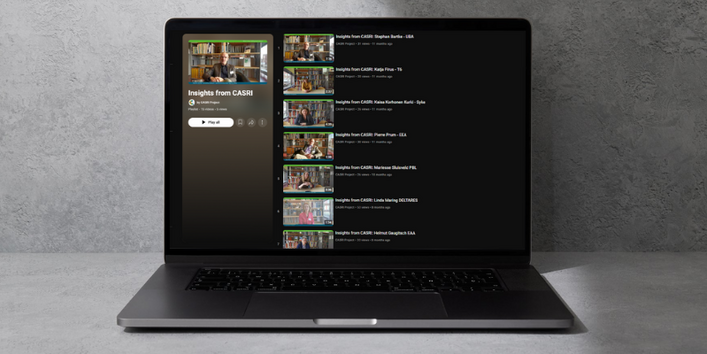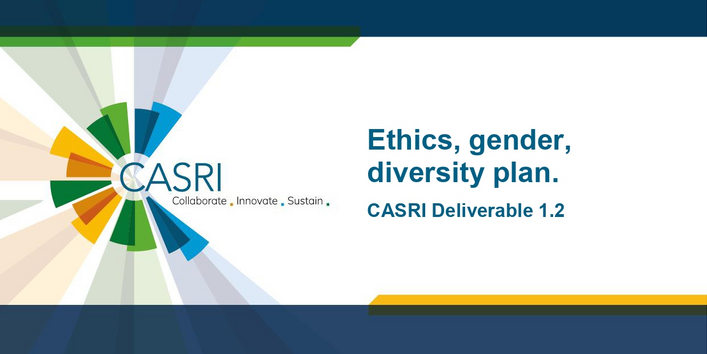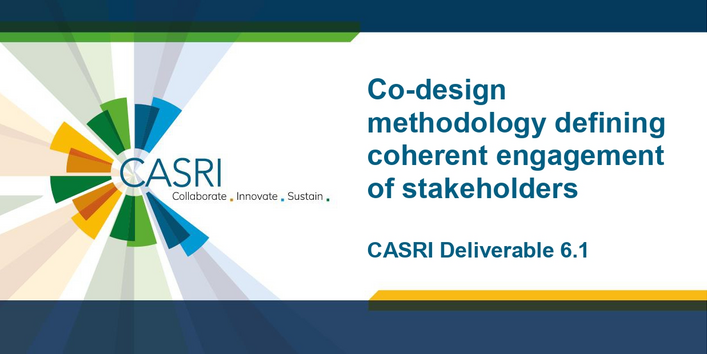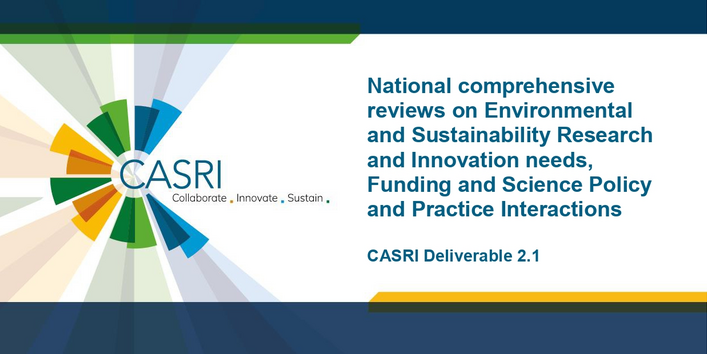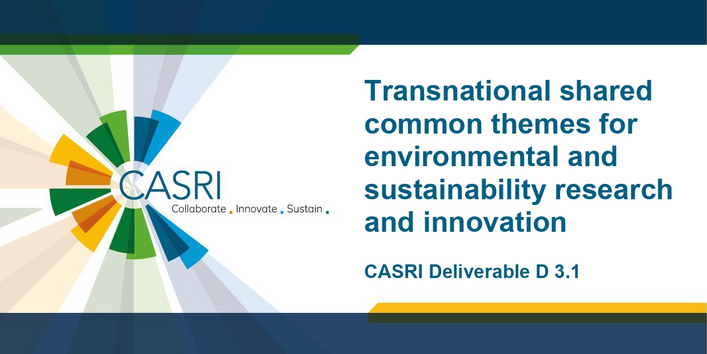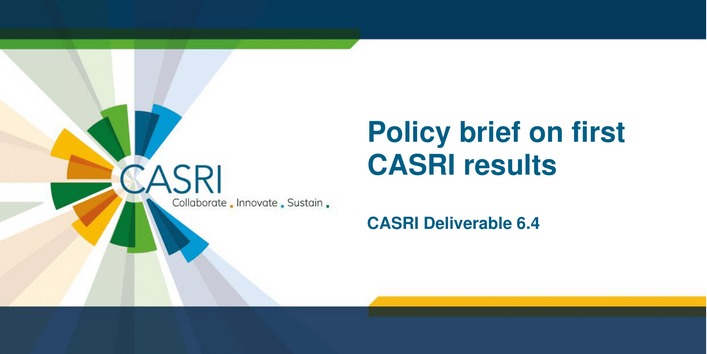Since the project's inception on 01.01.2024, our project work has been underway. We love sharing our initial results with you. Here you find important reports, policy briefs, and scientific contributions from the CASRI project.

Results
Table of contents
-
Insights into CASRI: The project partners have their say
-
The CASRI Ethics, gender, diversity plan
-
CASRI Communication, Dissemination & Exploitation Plan
-
CASRI Co-design Methodology defining coherent Engagement of Stakeholders
-
Report on National comprehensive Reviews on Environmental and Sustainability Research and Innovation needs, Funding, Science Policy and Practice Interaction
-
Transnational Shared Common Themes for Environmental and Sustainability Research and Innovation
-
Policy Brief on first CASRI results
Discover what the CASRI project has already achieved. And you can expect more in the future. Find here important reports, policy briefs, and scientific contributions.
Insights into CASRI: The project partners have their say
During the Launch of CASRI in Dessau in March 2024, we wanted to know what motivated our project partners to become part of the CASRI project. Further, we were interested in which results or outcomes of CASRI could be important for them in helping to address environmental and sustainability challenges. Which factors would determine the success of CASRI, and (how) could the project influence research funding?
The answers of our National Contact Points of the project partners and the International Advisory Board (IAB) of CASRI can be found on the UBA YouTube channel.
Further videos with CASRI partners, members of CASRI IAB and National Key Stakeholders can be found on the CASRI Project YouTube channel.
The CASRI Ethics, gender, diversity plan
Promoting ethical behaviour, striving for a balanced gender ratio and providing a diverse and inclusive research environment are crucial aspects during the course of the CASRI project. The CASRI Ethics, Gender and Diversity Plan (EGDP, Deliverable 1.2) is a comprehensive framework for setting priorities, setting specific goals and creating measures to ensure ethics, gender equality and diversity within CASRI. Because in a project that brings together environmental protection agencies and partners from across Europe to jointly address the challenges of sustainable research, this aspect is also relevant. The EGDP is designed to create an inclusive, fair and ethical framework for all CASRI activities.
CASRI Communication, Dissemination & Exploitation Plan
This plan, co-designed with all partners, provides the CASRI project consortium with practical information and guidelines for a targeted and efficient implementation of outreach activities (Deliverable D6.2). The document describes the external communication strategy, including objectives, target audiences, key messages, tools, channels, timeline, monitoring activities, and a version of a possible exploitation plan.
CASRI Co-design Methodology defining coherent Engagement of Stakeholders
The document presents the co-design methodology of the CASRI project to ensure a consistent stakeholder involvement throughout the different phases of the project (Deliverable D6.1). Goal is developing a Strategic Research and Innovation Agenda (SRIA) among the involved Environmental Protection Agencies.
This co-design methodology is intended as a guidance tool to provide a common understanding of the ideal project implementation.
Report on National comprehensive Reviews on Environmental and Sustainability Research and Innovation needs, Funding, Science Policy and Practice Interaction
The document compiles 14 national reports on research and innovation needs in the area of environment and sustainability, financing options, and the interaction between science, politics and practice. The national contact persons of the project partners surveyed the needs of their countries, closely involving key national actors. Experts in environmental and sustainability research at the interfaces of science, funding and practice discussed research gaps in the four CASRI themes as well as national and European challenges in interviews and workshops.
The comprehensive final report of the second CASRI work package, Deliverable 2.1, thus provides the data basis for further needs analysis and the development of a research agenda (SRIA) that can be implemented.
We have thus taken an important step towards achieving the project goal of jointly promoting innovative sustainability research in close cooperation between environmental administrations in Europe.
Policy Brief on first CASRI results
This policy brief summarises first CASRI results on actual research and Innovation needs, derived from more than 600 expert interviews, 14 national workshops in 14 countries and a regional transnational stakeholder workshop. CASRI identifies eight thematic research areas, i.e. sustainable production, biodiversity & climate change, urbanisation, energy transition and four cross-cutting challenges, i.e. security, democracy, competitiveness, and digitalisation. The project partners propose new collaboration models to improve research coordination, funding stability, and science-policy-practice integration.
The document offers first recommendations to EU policy-makers and research programme designers to better embed European Protection Agencies (EPAs) in the European Research Area (ERA), support long-term R&I platforms, and improve funding tools from a national to european scale.
